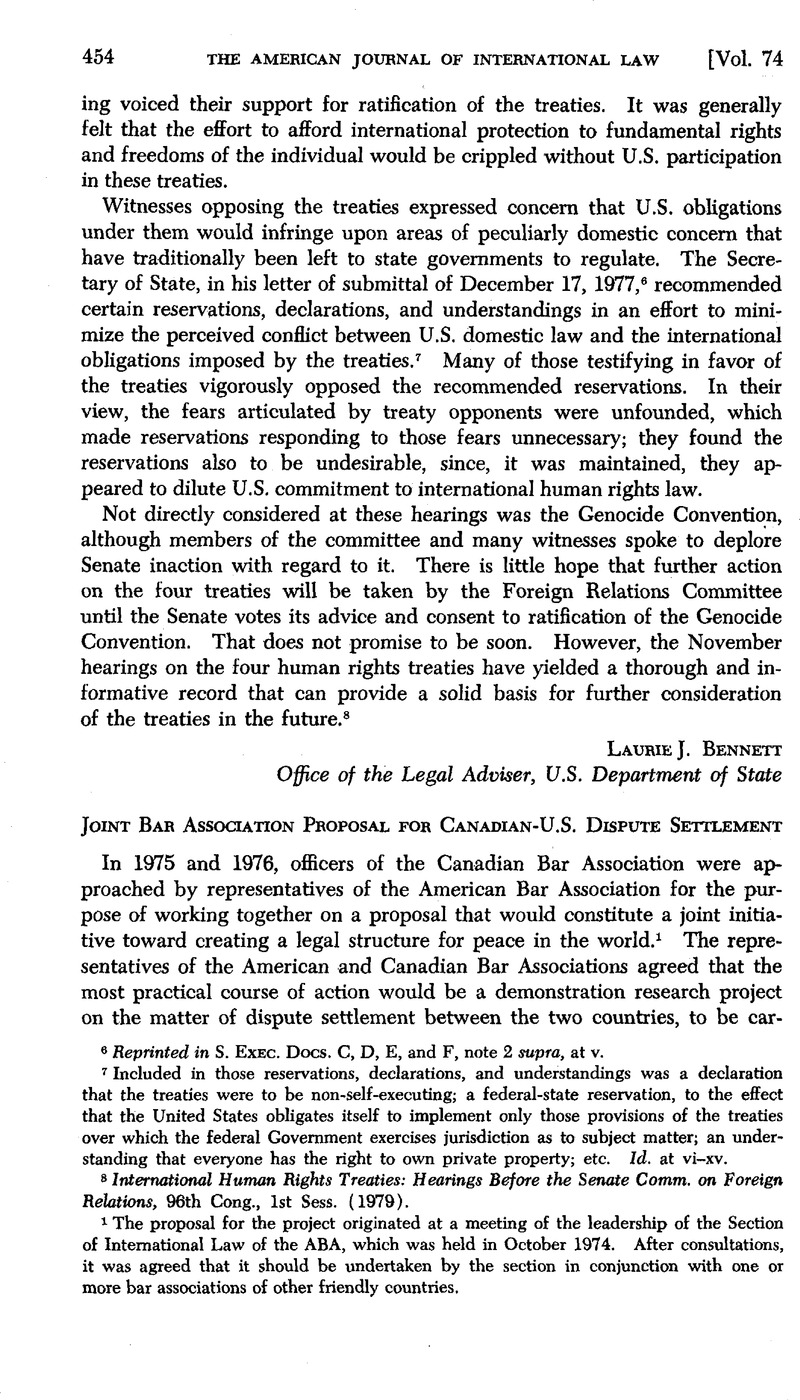No CrossRef data available.
Article contents
Joint Bar Association Proposal for Canadian-U.S. Dispute Settlement
Published online by Cambridge University Press: 27 February 2017
Abstract

- Type
- Current Developments
- Information
- Copyright
- Copyright © American Society of International Law 1980
References
1 The proposal for the project originated at a meeting of the leadership of the Section of International Law of the ABA, which was held in October 1974. After consultations, it was agreed that it should be undertaken by the section in conjunction with one or more bar associations of other friendly countries.
2 Henry T. King, Jr., Gerald Aksen, Professor Don Wallace, and Arthur T. Downeyhave represented the Section of International Law, with Professor Louis B. Sohn actingas U.S. rapporteur. For the Canadian Bar Association, T. Bradbrooke Smith, Q.C.,W. C. Graham, Q.C., and Professor J. G. Castel have been the designated representatives,with Professor George Alexandrowicz acting as Canadian rapporteur. Messrs.King and Smith acted as cochairmen of the Joint Working Group.
3 Copies of the Report and Recommendations of the Joint Working Group and of the resolutions and related reports of the 2 bar associations are incorporated in a document published by the Section of International Law, which can be obtained from ABA headquarters. Copies are also available at the offices of the Canadian Bar Association in Ottawa.
4 Since a number of the disputes that have arisen in the past between Canada and the United States have originated in pollution damage claims by private parties, it was felt that this proposal would fill an existing gap; Implicit also in the thinking of the Joint Working Group was the feeling that this type of dispute might create more extensive problems in the future.




